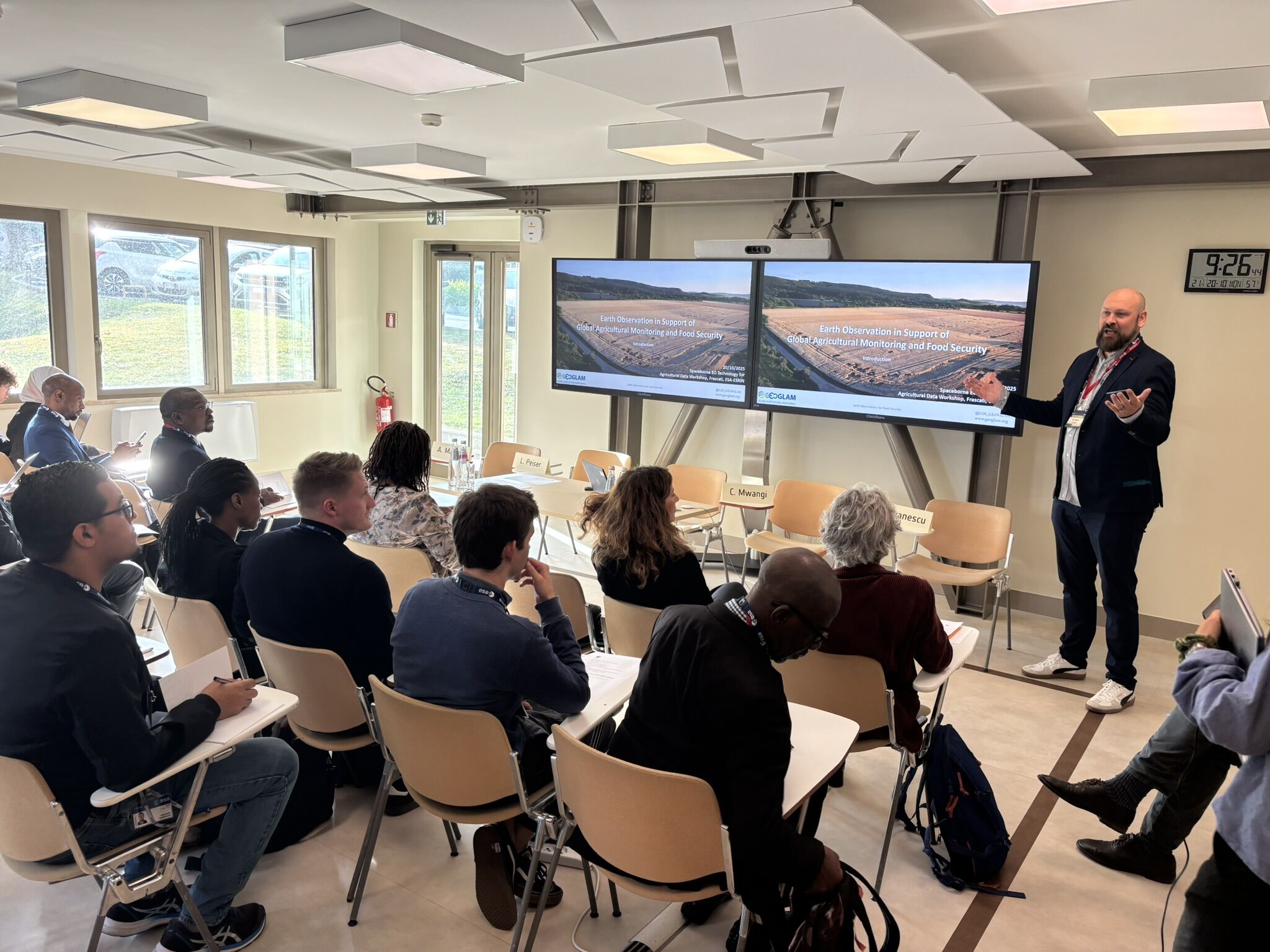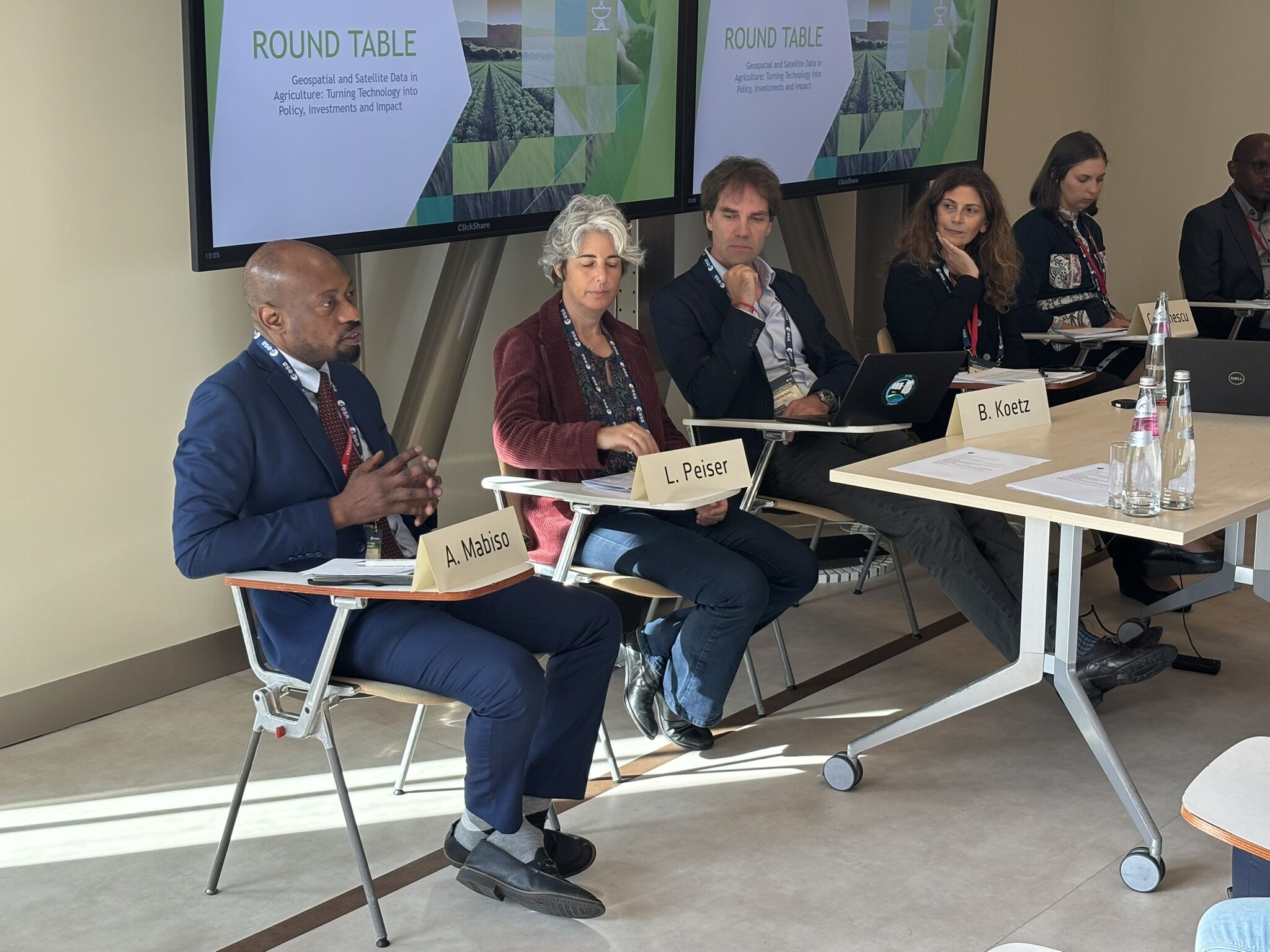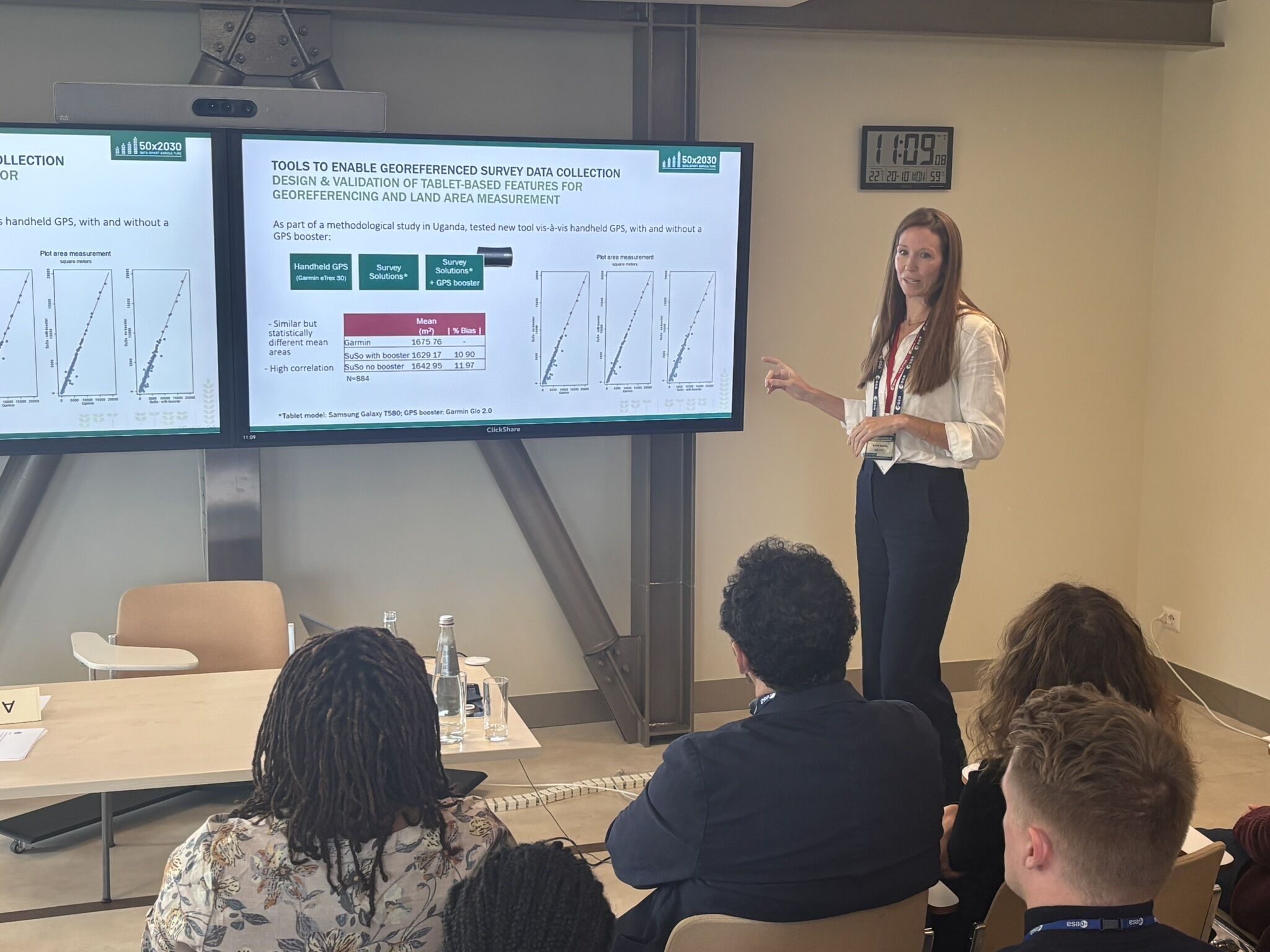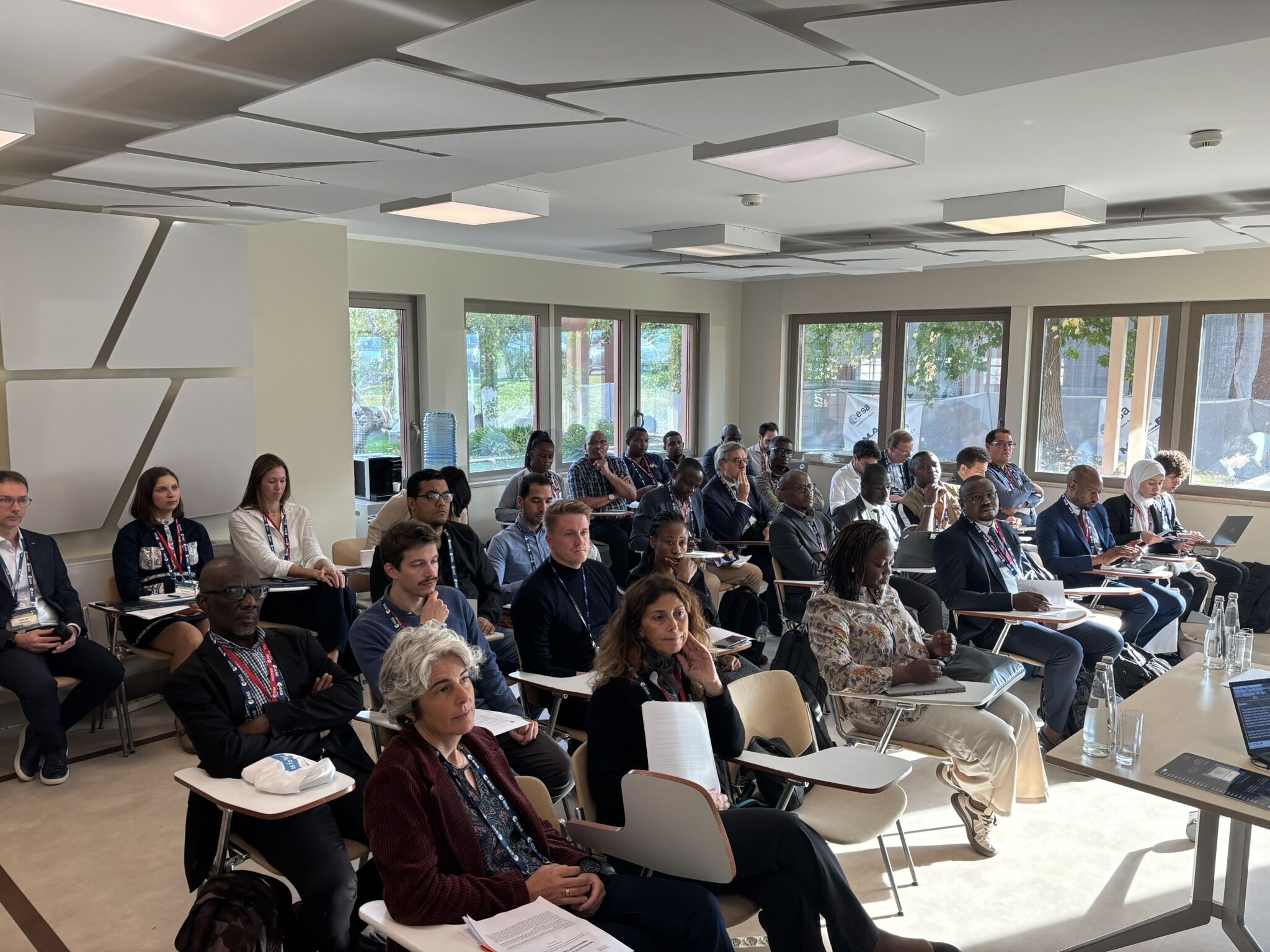



Frascati, October 20-24, 2025
The Sahara and Sahel Observatory representative, Mr. Mustapha Mimouni, Technology, Information and Remote Sensing Department Director, actively participated in a high-level ESA–World Bank event on Earth Observation (EO) technologies for agriculture and the GDA ABC Knowledge Hub Event.
The week-long workshop, “Spaceborne EO Technology for Agricultural Data & GDA ABC knowledge hub ” was held at the European Space Agency’s ESRIN center in Frascati, Italy, from 20–24 October 2025.
Co-organized by ESA and the World Bank, the event convened experts from around the globe to showcase how satellite data and geospatial tools can support sustainable agriculture and food security.
The OSS presence underscored its commitment to harnessing innovative EO solutions for the benefit of its member countries in the Saharan-Sahel region.
Mr. Mimouni engaged in productive exchanges with representatives from ESA’s Earth Observation programs and the World Bank’s development data teams. Together, they discussed strategies to integrate cutting-edge EO platforms into agricultural monitoring and decision-making.
Key technologies highlighted during the workshop included:
- WorldCereal: an open-source ESA platform for high-resolution crop mapping and monitoring, using satellite imagery and cloud computing. This tool enables detailed crop type maps and seasonal monitoring, crucial for planning and food security assessments.
- Sen4Stat: an ESA initiative designed to help national statistical offices incorporate satellite data into agricultural statistics. By leveraging EO data, Sen4Stat supports better estimates of crop acreage and production, improving the tracking of agricultural outputs and progress toward SDG targets.
- GDA knowledge hub : an open source ESA hub platform centralizing EO scenarios, methodologies, applications and concrete implementation of EO workflows in different regions around the world.
Discussions emphasized how such technologies could be leveraged to benefit countries in the OSS area of action, which spans North, West, and East Africa. By adopting platforms like WorldCereal for precise crop area mapping and Sen4Stat for crop yield estimation, the OSS and its partners aim to provide decision-makers with timely, accurate data. This data-driven approach will enhance agricultural policies, climate resilience, and food security efforts across the OSS member States.
Participants noted that using EO tools can greatly improve crop monitoring in remote or arid areas, enabling better allocation of the resources and early warning of drought or crop failures.
Mr. Mimouni’s message at the event underscored the OSS commitment to innovation and partnership. By harnessing cutting-edge Earth Observation technologies and strong partnerships, the OSS empowers member countries with data-driven solutions for sustainable agriculture. Collaborating with institutions like ESA and the World Bank allows the OSS to bridge innovation and local needs to turn satellite data into actionable information for farmers and policymakers across the region.
The OSS active participation in the ESA–WB workshop reflects its strategic vision of leveraging science and technology for sustainable development. The event not only provided an opportunity to share experiences and success stories in using remote sensing for agriculture, but also to learn from global best practices. By integrating advanced tools like WorldCereal and Sen4Stat into its projects, the OSS plans to enhance support for its member countries, helping them optimize agricultural production, manage natural resources, and strengthen climate resilience.